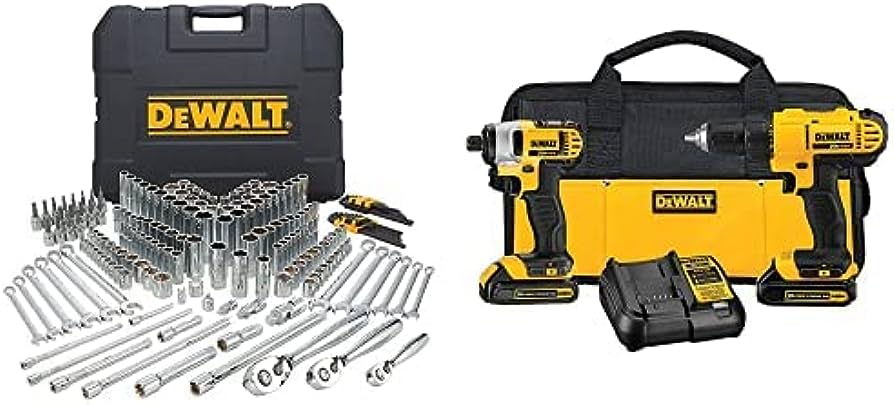When a cordless drill slips, you can prevent it from happening by tightening the chuck all the way, using a bigger bit, avoiding pressing too hard, cleaning the chuck, and inspecting the bit. A loose chuck can cause drill bits to slip, so ensuring it is tightened properly is crucial.
Additionally, using a bigger bit can reduce the risk of slipping. Pressing too hard can also contribute to drill bit slippage, so it’s important to apply the right amount of pressure. Cleaning the chuck and inspecting the bit regularly can help maintain their effectiveness.
Overall, taking these steps can help prevent drill bit slipping and ensure safe and efficient drilling.
Causes Of Cordless Drill Slippage
Insufficient chuck tightening: One of the main causes of cordless drill slippage is when the chuck is not tightened properly. It is important to ensure that the chuck is tightened securely to prevent any movement or slippage of the drill bit.
Worn-out chuck: Another common cause of slippage is a worn-out chuck. Over time, the chuck can become worn and lose its grip, resulting in the drill bit slipping. In such cases, it may be necessary to replace the chuck or consider buying a new drill.
Using the wrong drill bit size: Using a drill bit that is too small for the size of the hole can also lead to slippage. The drill bit may not be able to grip the material properly, causing it to slip out. It is important to use the correct size drill bit for the task at hand.
Solutions For Cordless Drill Slippage
When dealing with cordless drill slippage, there are a few solutions that can help address the issue. First and foremost, it’s important to properly tighten the chuck. A loose chuck can cause drill bits to slip, so ensure that it is tightened securely. Another potential solution is to replace the worn-out chuck. Over time, the chuck may become worn and not lock properly, leading to slippage. By replacing the chuck, you can restore the functionality of the drill. Additionally, it is important to use the correct drill bit size. Using a bit that is too small or too large for the chuck can increase the risk of slippage. By following these solutions, you can effectively address cordless drill slippage and improve your drilling experience.
Tips To Prevent Cordless Drill Slippage
To prevent cordless drill slippage, it is important to follow these tips:
- Ensure that the chuck is fully tightened. A loose chuck can cause drill bits to slip, so it is essential to secure it properly.
- Use a larger drill bit for better grip. The size of the bit can affect its risk of slipping, so opting for a larger bit can provide more stability.
- Avoid applying excessive pressure when using your drill. Pressing too hard can increase the chances of slippage.
- Regularly clean the chuck to remove any debris that can affect its grip. Keeping the chuck clean helps maintain proper functionality.
- Inspect the drill bit regularly to ensure its condition is good. Worn drill bits are more likely to slip out of place, so using new bits can prevent slippage.
By following these tips, you can prevent cordless drill slippage and ensure safe and efficient drilling.

Credit: www.ebay.com
Frequently Asked Questions Of What To Do When Cordless Drill Slips
How Do I Keep My Drill From Slipping?
To keep your drill from slipping, follow these steps: 1- Tighten the chuck all the way to prevent the bit from moving. 2- Use a larger bit for better grip. 3- Avoid pressing too hard while drilling. 4- Clean the chuck to remove any debris.
5- Inspect the bit for any signs of wear. By following these guidelines, you can keep your drill from slipping and ensure accurate drilling.
Why Does My Cordless Drill Keep Slipping?
If your cordless drill keeps slipping, the likely reason is a worn-out chuck that is not locking properly. To fix this, you can replace the chuck or consider buying a new drill. Using new drill bits, avoiding pressing too hard, and ensuring the chuck is clean can also help prevent slipping.
Start with low force and use a center punch or nail set to make a small dent in the metal before drilling to prevent wandering.
Why Does My Drill Slip?
Drill slips occur due to a loose chuck, worn-out drill bits, excessive pressure, or a dirty chuck. To prevent slipping, tighten the chuck properly, use new drill bits, apply moderate force, clean the chuck, and inspect the bit regularly.
How Do You Stop A Drill From Wandering?
To stop a drill from wandering, follow these steps: 1. Tighten the chuck all the way. 2. Use a bigger bit. 3. Avoid pressing too hard. 4. Clean the chuck. 5. Inspect the bit. By adhering to these guidelines, you can prevent your drill from slipping and ensure accurate drilling.
Conclusion
To prevent your cordless drill from slipping, make sure to tighten the chuck all the way and use a bigger bit for a more secure grip. Avoid applying too much pressure and keep the chuck clean and free from debris.
If your drill bit keeps coming loose, it may be time to replace the chuck or invest in a new drill altogether. Taking these measures will ensure smoother and safer drilling experiences.

